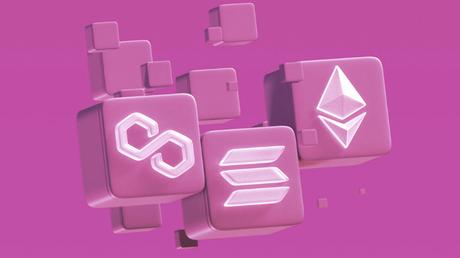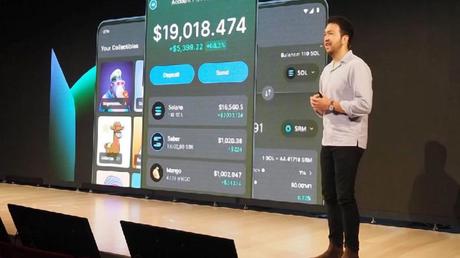
The popular Solana blockchain wallet will now support two competing proof-of-stake blockchains.
Phantom, a popular self-custody wallet for Solana-based decentralized applications and NFTs, has announced that it would add support for competing blockchains Ethereum and Polygon to its desktop, iOS, and Android applications.
As an alternative to centralized exchanges and firms that handle sensitive user data, the startup claims that an easy-to-use self-custodial wallet is vital.
“We are excited to bring the Phantom experience to the wider Web3 community,” said Brandon Millman, CEO, and co-founder of Phantom, in a statement.
The company’s stated objective is to provide the opportunity to engage with the three main blockchain ecosystems in an one spot and to address crucial usability and security issues in the digital collectibles market.
Phantom claims to have collaborated closely with Polygon to develop a first-rate wallet experience, which the business claims has already attracted more than three million active users. The business claims it intends to make crypto more accessible to everyone by providing a wallet with a consistent interface for storing and viewing assets across numerous blockchains that is both basic and straightforward to use.
Additionally, the business reports that a private multi-chain test will launch in the coming weeks, followed by a public release later this year.
“The Polygon ecosystem has been growing exponentially, and we are excited about bringing more people into the Web3 ecosystem,” said Ryan Wyatt, CEO of Polygon Studios. “Working with Phantom will allow us to deliver a feature-rich wallet that’s ready for mainstream consumers to use when interacting with apps powered by Polygon.”

Brandon Millman, Chris Kalani, and Francesco Agosti, who had previously worked on projects for 0x, Twitter, Facebook, and Matcha, respectively, established Phantom in 2021.
The Phantom wallet already enables developers, users, and collectors of Solana to interface with decentralized finance (DeFi) protocols and non-fungible tokens (NFTs).
Agosti stated at 0xpo Crossroads in October that Phantom was inspired by his unhappiness with the popular MetaMask wallet.
“[It was] frustration with Metamask, and frustration with trying to build consumer-friendly apps on Ethereum,” Agosti said. “The big elephant in the room has always been transactions [on Ethereum] and can this chain actually handle mainstream usage and millions of users.”
Agosti stated that the speed, low cost, and scalability potential of the Solana blockchain helped convince the team to build atop the proof-of-stake blockchain that many viewed as a “Ethereum killer.”
But the Ethereum merge last summer changed the second largest blockchain from a proof-of-work to a proof-of-stake, which put an end to Solana’s dominance among proof-of-stake blockchains. Phantom would have to change to keep up with the times, of course.
“Across every blockchain ecosystem and Web3 use-case, self-custody is now more important than ever,” Millman said. “We are bringing everything crypto users need in one place while providing the best in class user experience and security.”
Leave this field empty if you're human: